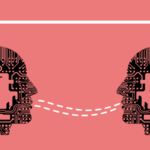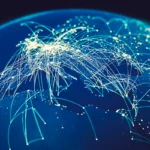In recent years, the world has witnessed a remarkable evolution in how organizations are structured and governed, thanks to the emergence of Decentralized Autonomous Organizations (DAOs). DAOs represent a revolutionary shift away from traditional centralized structures, offering a glimpse into the future of governance. These blockchain-based entities are redefining the way decisions are made, resources are managed, and communities collaborate.
Understanding DAOs
A Decentralized Autonomous Organization, or DAO, is a self-governing entity run by code and powered by blockchain technology. Unlike traditional organizations, DAOs have no central authority or hierarchy. Instead, they rely on smart contracts to execute predefined rules and make decisions through consensus mechanisms. This decentralized approach ensures transparency, security, and trust in the decision-making process.
Key Characteristics of DAOs
Transparency: All actions and decisions within a DAO are recorded on a public blockchain ledger, making the entire process transparent and auditable by anyone.
Token-Based Voting: DAO members hold tokens representing their stake in the organization. These tokens grant voting rights in proportion to their ownership, giving everyone a voice in governance.
Immutable Rules: The rules and functions of a DAO are embedded in smart contracts, making them unalterable without consensus from token holders.
Autonomous Decision-Making: DAOs automatically execute decisions once a predefined quorum of votes is reached, eliminating the need for intermediaries.
Global Participation: DAOs are not limited by geographical boundaries, enabling a global community to participate in decision-making and resource allocation.
The Promise of DAOs
Decentralized Governance: DAOs empower individuals to participate directly in organizational decisions without the need for intermediaries. This opens the door for more inclusive and equitable decision-making processes.
Trust and Transparency: The transparency of blockchain technology ensures that all actions and transactions within a DAO are verifiable, reducing the risk of corruption and fraud.
Accessibility: DAOs are open to anyone with an internet connection, providing an opportunity for underrepresented communities to engage in governance and resource allocation.
Reduced Costs: Eliminating the need for centralized administrators and intermediaries can lead to cost savings, making resource allocation more efficient.
Innovation: DAOs can quickly adapt to changing circumstances and implement innovative solutions without the bureaucracy often associated with traditional organizations.
Applications of DAOs
Decentralized Finance (DeFi): Many DeFi projects are governed by DAOs, allowing users to vote on protocol changes, upgrades etc.
Decentralized Social Networks: DAOs can facilitate community-driven decision-making in social networks, offering users more control over their data and content.
Supply Chain Management: DAOs can be used to enhance transparency and traceability in supply chains, reducing fraud and ensuring the authenticity of products.
Nonprofits and NGOs: DAOs enable transparent allocation of funds and resources in charitable organizations, ensuring that donations reach their intended recipients.
Challenges and Considerations
Despite their potential, DAOs face several challenges:
Legal and Regulatory Uncertainty: The legal status of DAOs varies across jurisdictions, and regulators are still adapting to this new form of organization.
Security Concerns: DAOs are susceptible to vulnerabilities in their smart contracts, which can lead to exploits and financial losses.
Governance Deadlocks: Achieving consensus in large and diverse communities can be challenging, leading to governance deadlocks and delays in decision-making.
Lack of Accountability: Without clear mechanisms for enforcing decisions, some DAOs may struggle to hold members accountable for their actions.
Decentralized Autonomous Organizations are reshaping the future of governance by fostering transparency, inclusivity, and innovation. While they face challenges, their potential to revolutionize various sectors, from finance to social networks and supply chains, is undeniable.
As technology and legal frameworks continue to evolve, DAOs are poised to play an increasingly significant role in shaping the world’s organizations and communities. Embracing this decentralized future may lead to a more equitable, efficient, and participatory global society.
















Leave a comment